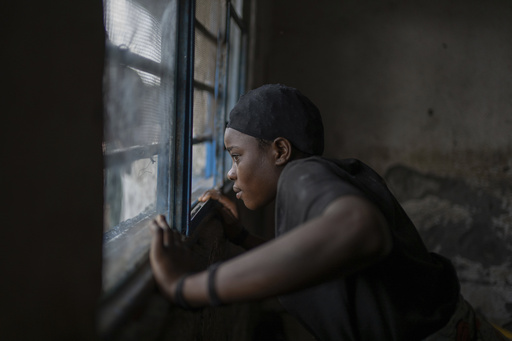GOMA, Congo — Families of fleeing Congolese soldiers are facing dire circumstances as Rwanda-backed M23 rebels have taken control of Goma, the major city in eastern Congo. Reports from these families indicate that they have been targeted, with soldiers’ wives being forcefully chased from military barracks, leaving them stranded in Goma. Some children are reportedly being coerced into joining the rebel forces.
Following the M23 rebels’ advance into Goma in late January, they occupied military camps around the city, which had previously housed numerous military families, quickly displacing the relatives of soldiers. The M23 is one of approximately 100 armed groups competing for power in eastern Congo, which is rich in minerals. The rebels recently escalated their confrontation with government forces by capturing both Goma and Bukavu, the region’s largest cities, resulting in thousands of soldiers fleeing or surrendering and claiming the lives of at least 2,000 individuals.
Many families displaced from military camps now find themselves living in temporary shelters, including schools. Their personal belongings clutter the classrooms as several families are crammed into a single room. Interviews with these families reveal the hardships and uncertainty they face. Francine Kayenga, who managed to escape from the Mubambiro military base in Masisi territory, recounted losing almost everything, including her husband who died recently due to the conflict.
Kayenga, who is heavily pregnant, expressed deep despair, saying, “I cry every night. If I didn’t have my children, I would have ended my life.”
This present M23 rebellion is distinct from the one in 2012, during which they briefly captured Goma before retreating following international pressure. Currently, the group has set its sights on overthrowing President Félix Tshisekedi’s government. Despite calls for a ceasefire, M23 aims to consolidate its power, supported by as many as 4,000 Rwandan soldiers. The rebel leaders have vowed to eradicate what they describe as poor governance and insecurity from the cities they control.
Albertine Malongi, who lost her husband in the conflict, reported that her 19-year-old son fled Goma as rumors circulated about the rebels forcibly recruiting individuals, particularly targeting older boys. She expressed concern about the fate of families in similar situations, fearful for their children’s safety.
While independent verification of accounts regarding forced recruitment has not been possible, the U.N. human rights office has confirmed instances of child recruitment and summary executions carried out by M23 rebels in occupied regions, particularly in Bukavu. The U.N. has urged both Rwanda and M23 to uphold human rights and abide by international humanitarian laws.
As the rebels advance, they continue their confrontations with Congolese forces while meaningfully establishing control over Goma and Bukavu. The M23 have indicated intentions to reopen schools, prompting worries among displaced families regarding their future living arrangements when students resume their classes.
Mwamini Tusawe, 37, shared her uncertainty about the future: “We don’t know where we’re going to live, where we’re going to go because our houses had been burned, and we don’t know if our husbands are still alive.”
Children within temporary settlements at schools like Furaha Primary and Rutoboko Secondary can be seen playing, while their mothers attempt to adapt to their changed lives. Some women have resorted to selling personal belongings to buy food for their families.
However, safety remains elusive, as the M23 frequently appears at the shelters, searching for soldiers. Lucie Mapasa, who has also lost her husband in the conflict, recounted a frightening encounter with the rebels when they demanded to know her husband’s whereabouts. “I showed them my children and explained that their father was dead,” she said.
Inside the classrooms converted into shelters, educational materials are visible, yet education is now a secondary concern compared to the urgent need for food. Louise Sabina, a mother of ten, admitted, “We’ve sold everything just to eat. One day, there will be nothing left, and we will starve.”
This website uses cookies so that we can provide you with the best user experience possible. Cookie information is stored in your browser and performs functions such as recognising you when you return to our website and helping our team to understand which sections of the website you find most interesting and useful.
